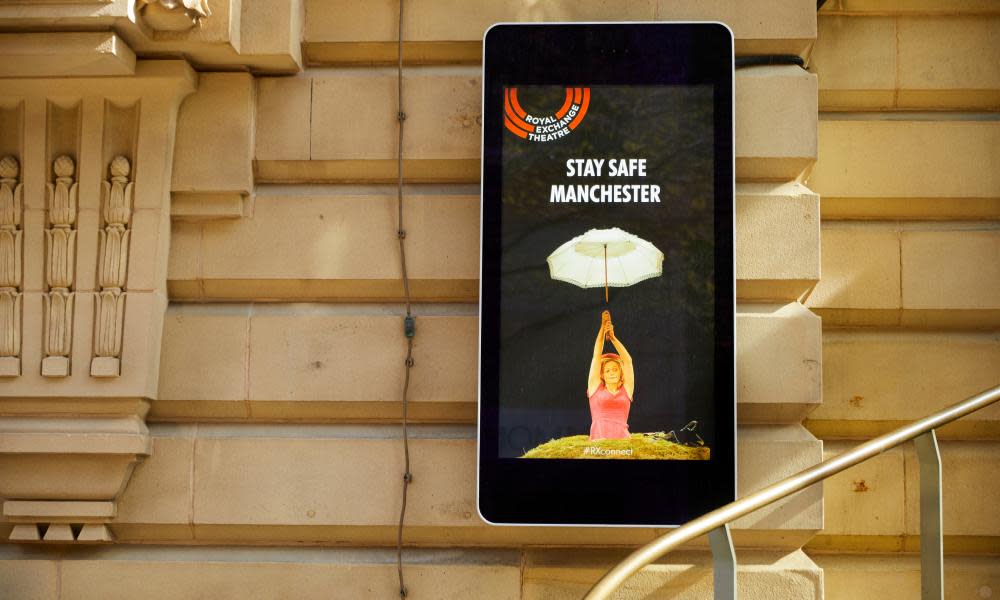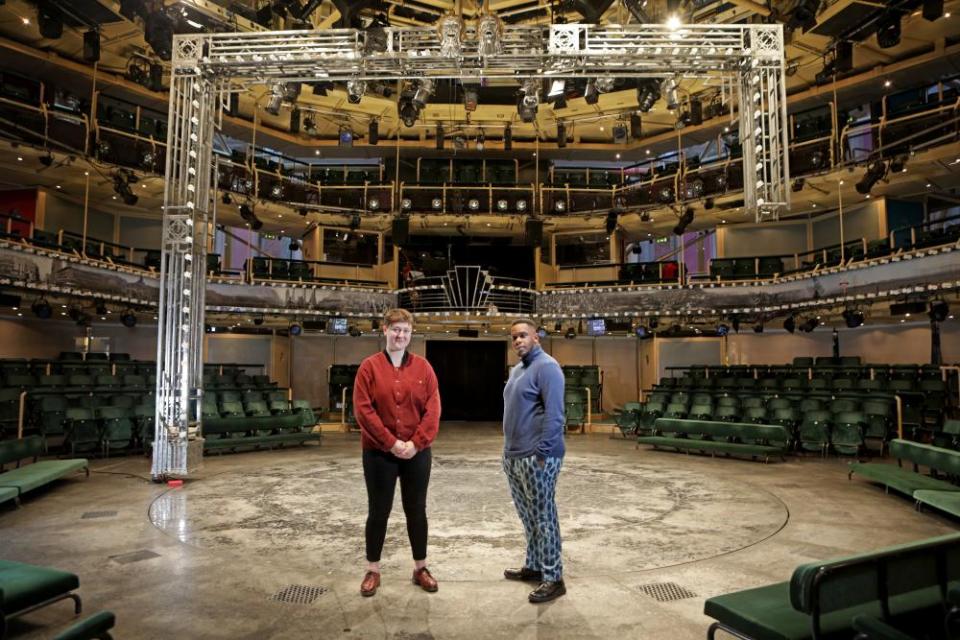Manchester's Royal Exchange theatre says 65% of roles could be made redundant

The Royal Exchange in Manchester, one of the UK’s most celebrated theatres, says it faces making up to 65% of its permanent roles redundant.
In a statement on Wednesday, the theatre announced that there was nothing in the government’s roadmap for the arts industry that gave them “confidence or clarity to be able to restart any activities in the immediate future”.
The Royal Exchange relies heavily on income from its box office, bar and restaurant, and venue hire. It has gradually reduced its dependence on public subsidy, which now equates to less than 25% of its £10m annual turnover. “At the moment, we simply can’t trade, as live performances are not allowed in theatres,” it said in a statement. “Even if we were allowed to open, whilst there are still social distancing measures in place, it is just not financially viable within our current structure.”
Its only option, it said, is to “scale back the organisation and reduce our overheads in order to survive. This means that we have been forced to make the incredibly hard decision to enter a period of redundancy consultation with our staff.”

The company has two artistic directors, Bryony Shanahan and Roy Alexander Weise, who took over from Sarah Frankcom in 2019. The Royal Exchange is known for its spaceship-like, in-the-round auditorium situated in the great hall of a Grade II-listed building, once the world’s biggest cotton exchange. It has staged celebrated productions for Manchester international festival and is known for Frankcom’s ongoing collaboration with Maxine Peake, which has included productions of Happy Days, Hamlet and A Streetcar Named Desire.
Shanahan said it was heartbreaking and “hugely frustrating that government support simply hasn’t reached us in time, despite clear warning signals and cries for help. Access to culture for all should not be a luxury but a right, and so we must value it as such as we heal and move forward from this time.”
Weise said: “The only way through this tremendously difficult time is to have unwavering optimism; keeping our eyes firmly on the goal of building again a vibrant hub of creativity and connection for Greater Manchester … Theatre, arts and culture will be needed more than ever to support our collective recovery. When we eventually open our doors, we will be a pillar of strength, love and resilience for all.”
On Wednesday, Norwich Theatre Royal announced that more than half of its workforce is now at risk of redundancy, with the chief executive Stephen Crocker saying he was “shocked and angry” that the government was “standing idle as an industry that has delivered so much to this country and is so vital to its recovery is being allowed to fade into dust”.
Last week, the culture secretary, Oliver Dowden, unveiled a “roadmap” for the reopening of the UK’s performing arts venues. It was dismissed by many leading industry figures as vague and crucially lacking timeframes and a funding package. A government spokesperson stated last week: “We are doing all we can to support these industries through government grants, loans, the furlough scheme and the Arts Council’s £160m emergency response package. We are also considering ways in which we may be able to support it further on top of the unprecedented financial assistance we have already provided.”

 Yahoo News
Yahoo News 
